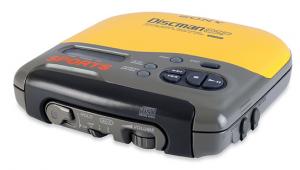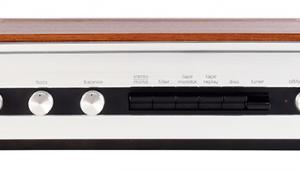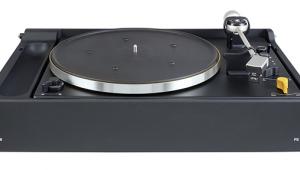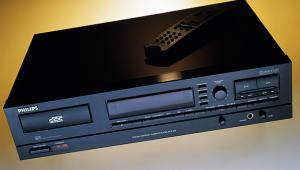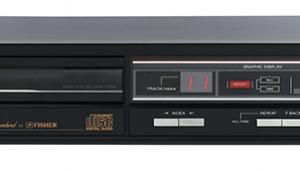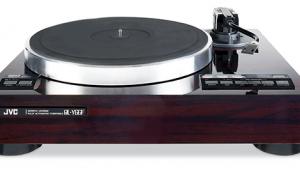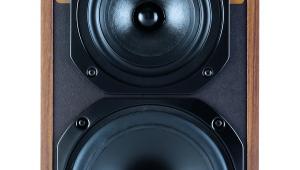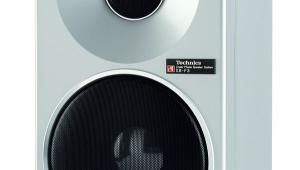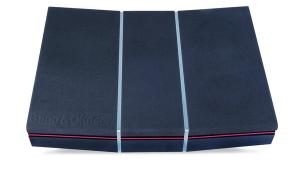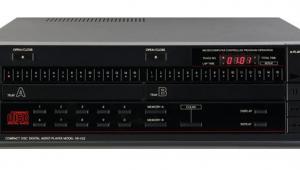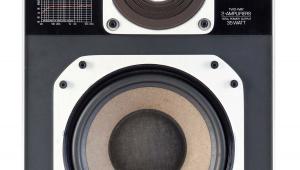Philips AF 877 Turntable Page 2
Fun Run
The AF 877 highlights a difference between the British and European hi-fi markets during the late '70s. Sound quality expectations were broadly similar but in the UK a homespun appearance with simple cabinetwork and generic fittings was a sign of a specialist product. Contrary to this, European buyers demanded elegant looking units finished to a high standard and which functioned with slick, automated efficiency.
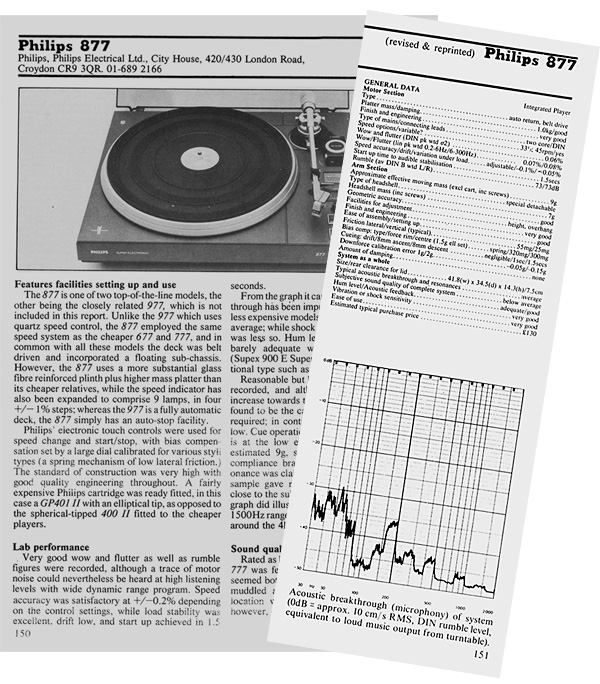
One can see this in the Philips design with its large anti-skating dial and the clever stylus balance built into the arm rest – just release the arm and a green section against a thin calibrated scale shows the downforce. The motor is started by simply touching the '33' or the '45' rpm sensor, the deck then comes to life and a strip of nine small LEDs shows the speed error in 1% increments. There is fun to be had with this before a record even goes onto the deck. Braking the platter gently with one's finger allows the servo action to be observed since the indicator shows the actual platter speed rather than just the set point. Releasing the load shows a mild overshoot followed by a rapid return to stability, a textbook response.
Both speeds are variable via two small knobs, there being no quartz reference to ensure absolute accuracy. Since this is a semi-automatic player the arm has to be placed on the record to begin with. It is simple enough to cue, but it would have been easier if the finger-lift had been in a more conventional place.
In standard form the AF 877 comes with a DIN connector so an adapter will be needed to connect it to some types of amplifier. Note that one intended for high-level sources (cassette, CD, etc) will not do because separate ground connections from the shell and pin 2 of the DIN plug are required. If you have vintage Philips, B&O, Braun or other equipment built to DIN standards there will be no problems.
![]() Tim Listens
Tim Listens
The first question to answer when listening to the AF 877 is does the Direct Control system really work? The answer is an unqualified 'yes'. In fact pitch stability was remarkable and I found it difficult to separate the deck's performance in this regard from that of the direct-drive Technics SL-Q303 [HFN Jan '18]. Market-wise the two would have been natural rivals. Of course the concentricity of the recorded material in respect to the hole in the middle of the record being played conspires to limit any turntable's ultimate performance in this area. Yet the AF 877 manages to get closer than any other belt-drive design I have encountered. It certainly leaves its more traditionally modelled Dual and Rega competitors a long way behind.
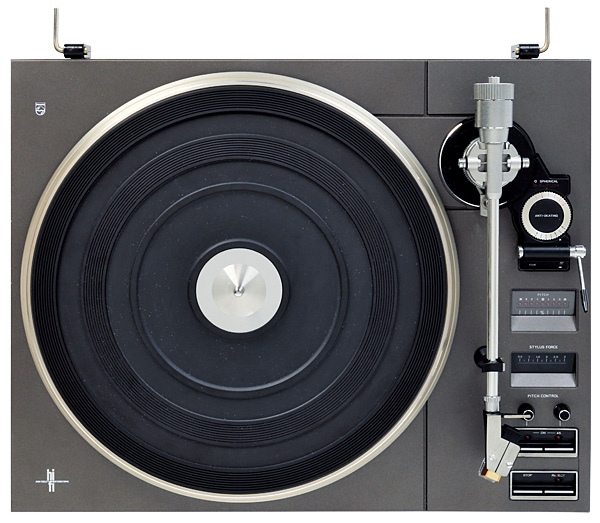
Solo piano music is a tough test for any belt-drive turntable, so I went straight in at the deep end with a delightful collection of Chopin Nocturnes performed by Daniel Barenboim [Deutsche Grammophon 2741 012]. The AF 877 never seemed to put a foot wrong, for not only was every note solid and consistent but the totality of the image created was anchored firmly between the speakers.
A good sense of front-to-back location was also evident, making for a truly immersive experience. Inaudible levels of hum and a complete absence of mechanical noise helped with the creation of this illusion. Indeed, the whole system seemed to just disappear.
Speed And Drive
This range of Philips turntables received some criticism when launched over the suitability of the GP412 cartridge for the rather lightweight straight arm. Although technically a fair match, listening to a range of music revealed that the combination doesn't deliver the bass weight one would expect. The effect is slight, and is probably eliminated in a system using Philips MFB loudspeakers (most of which have flat and extended bass response beyond the normal limits). But with conventional equipment the AF 877/GP412 combination sounded a bit dry.
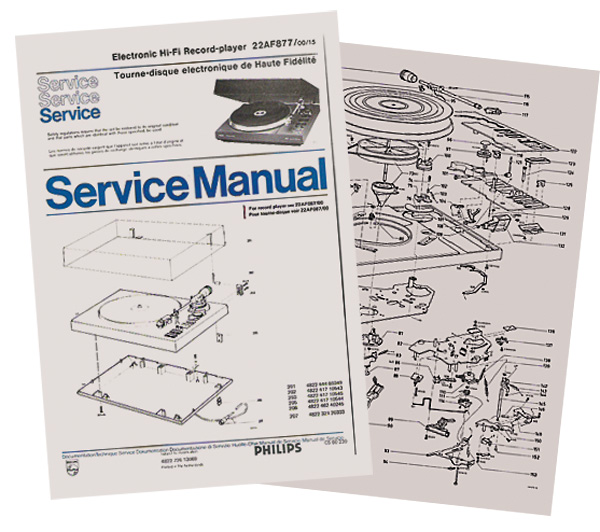
The pounding beats of 'I Want A Dog' on The Pet Shop Boys' album Introspective [Parlophone PCS7325] lacked some of their usual impact with this deck, though the speed and drive of the lighter percussion made up for this. Again this unpretentious Philips turntable was doing things that one normally needs big direct-drives for.
One can't review any Philips equipment of this era without a bit of Dire Straits, so on went the live album Alchemy [Vertigo 818 243-1]. While not technically the band's best recording, the AF 877 was still able to reveal space around the performers and bring the concert back to life. Yes, at low volumes the sound lacked some drama, but played at more realistic levels the deck's slightly laid-back presentation seemed to gel with the rest of the system to create a realistic-sounding account of the live event – surely what high-fidelity is all about?
The Philips AF 877 turned out to be something of an enigma. While not being the best turntable I've ever heard, you have to choose something fairly exotic to improve on it usefully. It is a tad quirky in the way that it works and in the way that it sounds, but in the end I found myself seduced by its charms. Like the MFB loudspeaker, 'different' can sometimes be 'better'.
Buying Secondhand
Finding any one of this family of Philips turntables in not easy in the UK, but they were popular across mainland Europe and remain cheap and plentiful there. Philips made almost all of the components in-house and the quality is good, meaning that failures in the complex electronics are rare. The motor is durable too, although with age they can begin to become noisy so this is an area worth checking.
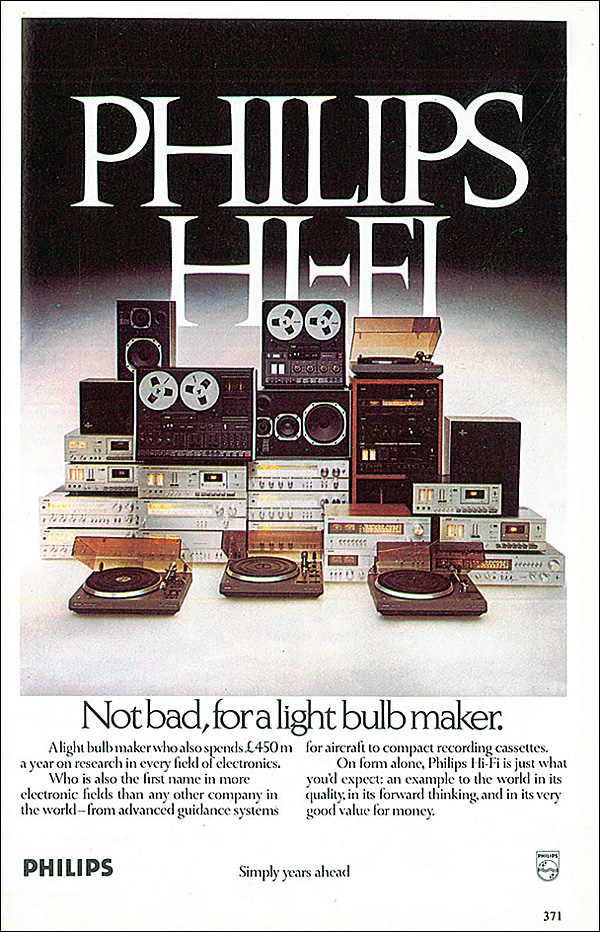
The belt is a square section, like those used in tape recorders. It is also quite short, so if it is damaged or missing then a replacement traditional turntable belt will not fit. Thanks to the Direct Control servo, however, the exact cross section of the belt is not critical, so long as it is not so stiff as to upset the functioning of the suspension.
The touch-sensitive switches may fail to work if they become tarnished and this should be the first thing to look at if the turntable refuses to start. The arm will accept most modern standard-sized cartridges but the headshell is special – if it is missing don't bank on a replacement being that easy to find.
Hi-Fi News Verdict
Philips may not be the obvious choice when you are looking to buy a turntable but it's hard to ignore the Direct Control series after hearing what the AF 877 can do. Well made, easy to use and capable of good performance in a well balanced system, its fascinating technology really does deliver on its promises. Import a clean and unmolested example from the continent and you are unlikely to be disappointed.



